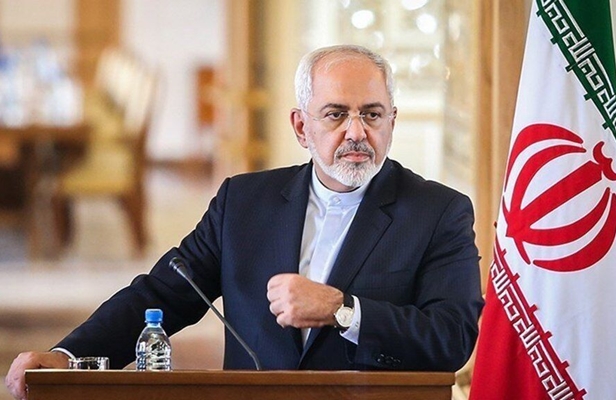He made the remarks in a Wednesday address to the International Conference on Global Economy and Sanctions”, held in Al-Zahra University of Tehran.
In his speech, he discussed the US’ hostile policies against Iran, giving a definition of “sanction” and “economic terrorism”.
He said that using the term “sanction” for the United States’ measures has no legal ground.
He also stated that the US measures are in violation of the JCPOA and the UN Security Council Resolution 2231, and not only have not been taken for law enforcement but are aimed at breaking the law and for the US’ illegal use of a legal term.
In response to comments by the US secretary of state who had claimed that if people of Iran want to have food to eat, they should force their government to change its policies, Foreign Minister Zarif said using starvation of civilians is a blatant example of war crime, and terrorism is also an example of an international crime.
“This measure by the US not only does not bear the legal conditions of sanctions, but involves the legal conditions for economic terrorism. Since the main target of economic terrorism and war is civilians, it amounts to a war crime.”
Zarif also noted that the primary and fundamental strategy of the Islamic Republic of Iran and people for countering the United Sates’ maximum pressure is maximum resistance.
Highlighting the reliance on internal forces and capabilities as the examples of such resistance, the foreign minister underlined that Iran’s capabilities are growing in this path.
Zarif also noted that one of the ways to combat the US economic terrorism is to minimize the unnecessary tensions in relations with the other governments, particularly with the neighbours, by observing the principles of wisdom, dignity and expediency.
“We must believe and be committed to concentrating our national strength on the immediate target, namely countering the US ‘economic terrorism’ and getting through these conditions.”
He also emphasized the necessity for vigilance and caution in countering the US measures, stressing, “We should not allow the US to turn its hostile and illegal policies against Iran into an issue and stance of the international community or to change the question and its unilateral economic terrorism against the Iranian nation into a legitimate international issue.”
The Iranian foreign minister also described the use of national currencies for economic exchanges as another way to deal with the US economic terrorism, stating, “We have begun negotiations with many countries about the complicated barter systems, some of which have yielded results and some others are going to be finalized, as the INSTEX mechanism proposed by the Europeans is founded on this basis – in case the Europeans have their own political power and will – and this would be an alarm for the US to see its closest friends, at least in theory and not in practice, breaking away from (the US) dollar.”
